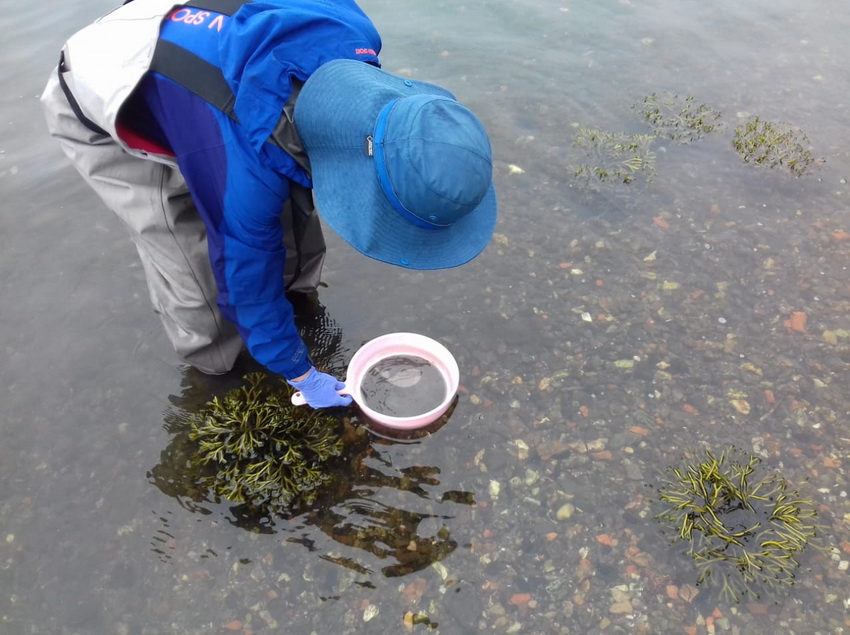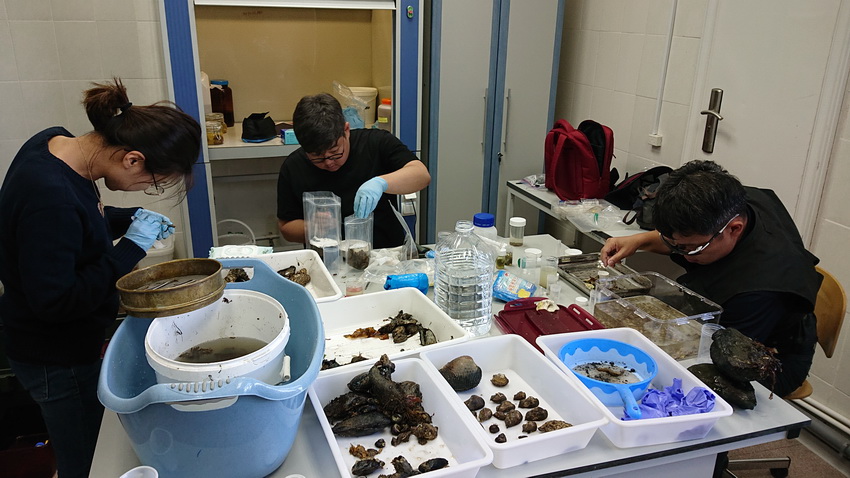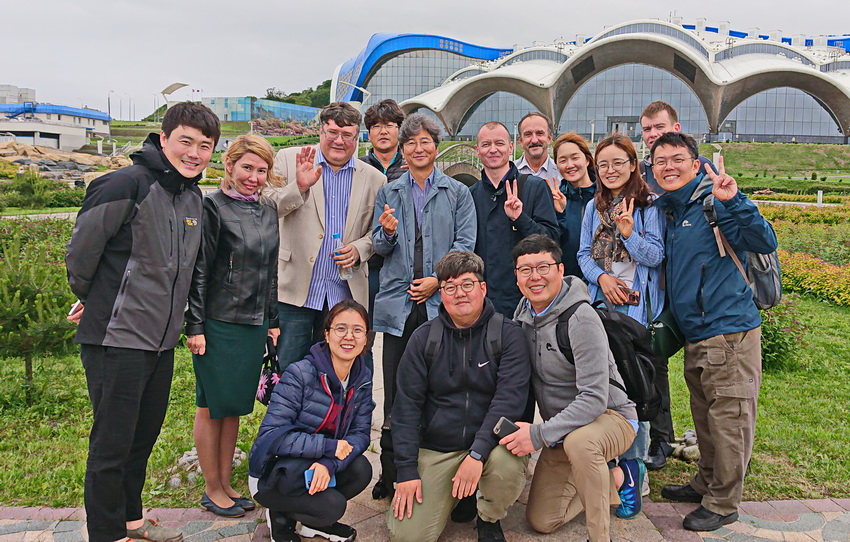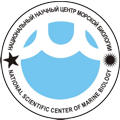In August 2016, a Korean delegation of scientists from National Marine Biodiversity Institute of Korea (MABIK), a new scientific institute established in 2015 as a special governmental institution, the first in Korea, for studying marine biodiversity, visited the A.V. Zhirmunsky National Scientific Center of Marine Biology (NSCMB FEB RAS) to take part in a joint scientific seminar. The delegation was headed by Prof. Kim Sang-Jin, President of the MABIK. After the workshop, the ceremony of signing Memorandum of Understanding on cooperation between the MABIK and the NSCMB FEB RAS was held. Next year, in 2017, the parties decided to create a joint laboratory; Academician A.V. Adrianov, Director of NSCMB and Prof. Kim Sang-Jin, President of MABIK signed the additional protocol for establishment of the laboratory named “Marine Joint Laboratory of Biodiversity” (MJLB). During 2017, preparations were made for organization of the laboratory; different fact-finding tours and trips were organized for Korean scientists to the Museum of the NSCMB, to different laboratories of the center, to the Marine Biological Station “Vostok” in Vostok Bay, and to the Primorsky Aquarium – all these events made favorable impressions on our Korean colleagues by the level of equipment and by the level and diversity of scientific research in the Center. The next step of developing research cooperation was to realize the first joint MABIK-NSCMB meeting on marine biodiversity; the official opening of the joint laboratory occurred on September 6, 2018. Also, the scientific committee of the laboratory was established in September 2018; the committee includes: from MABIK – Prof. Yoo Jongsu, Co-Director of the laboratory from the Korean side, and Dr. Lee Daesung and Dr. Yoon Moongeun as members of the committee; from the NSCMB – the leading researcher Dr. Konstantin A. Lutaenko (the Laboratory of Systematic and Morphology), Co-Director from the Russian side, Prof. Yuriy F. Kartavtsev (the Laboratory of Molecular Systematics) and the Senior Researcher, Ph.D. Vasiliy I. Radashevsky (the Laboratory of Embryology) as members. These scientists have experience of many-year cooperation with scientific institutions and universities in Korea; they have published a number of collaborative studies and are recognized in the scientific community as specialists in faunistics and in traditional and molecular systematics. In February 2019, the first meeting of the MJLB scientific committee took place in MABIK (Seocheon-gun, Republic of Korea), where the Russian side was presented by Dr. V. S. Odintsov, Acting Director of the NSCMB, K.A. Lutaenko and Yu. F. Kartavtsev; the committee accepted a plan of cooperation for the next three years, including the first joint field investigations in the Sea of Japan.
As a part of work of the Russian-Korean “Joint Marine Laboratory of Biodiversity”, the first field laboratory studies were carried out in June 23-30, 2019 in Peter the Great Bay of the Sea of Japan. For these surveys, ten specialists from Korea arrived in Vladivostok: Prof. Jong Su Yoo, the Deputy Director of MABIK, the Co-Director of the joint laboratory from the Korean side; Dr. Minseop Kim, Chief Researcher, Dr. In Young Cho, Researcher, Dr. Hana Kim, Researcher, Dr. Changho Yi, Researcher; Dr. Yunhwan Jung, Researcher, Dr. Yunsuk Kim, Researcher, Dr. Dojin Yoon, Mr. Jeong Chan Kang, and Mr. Yeonghyun Cho, an underwater photographer.

During the field surveys on the coasts of the Amursky and Ussuriisky bays and Russky Island, samplings of marine fauna and flora were made by three groups: intertidal, diving (subtidal), and hydrobiological units, the latter one aboard the small R/V “Vladimir Kasyanov”. The intertidal unit surveyed a few bays (Novik, Ayaks, etc.), the top part of the Amursky Bay, the shore at the building of the NSCMB, the Skrebtsova Island, Gornostay and Sobol bights in the Ussuriisky Bay and gathered invertebrates, algae and sea weeds. Underwater Scuba-divers (a group of 6-8 persons) worked at the coasts of the Russky Island, they collected samples of flora and fauna at a depth of few meters; additionally, divers of the NSCMB collected samples in the coastal zone of the Amursky Bay. The hydrobiological group worked with the use of a grab and plankton nets, collecting zoo- and phytoplankton from aboard the R/V at the coast of the Zhitkov Peninsula (Russky Island). For the first time, the Korean specialists became acquainted with the coastal biota of Peter the Great Bay; the special emphasis was made on sampling amphipods, polychaetes, mollusks, echinoderms, algae, and plankton. These collections will replenish the scientific funds of MABIK and can be used in joint investigations of biodiversity of the Sea of Japan ( the East Sea), including also molecular-genetic studies. The group of leading and young specialists of the NSCMB who participated in joint field surveys included Ph.D. Yu. A. Trebukhova, Ph.D. S. A. Turanov, Ph.D. O.A. Golovan, Ph.D. A.G. Bashmanov, and Dr. K.A. Lutaenko, with assistance of Dr. V.I. Radashevsky. The Acting Director Dr. V.S. Odintsov supported the work of the joint laboratory and cooperative field surveys in every way. Various technical resources and devices of the Center, including the group of divers, cars, the research vessel, grabs, nets and etc. were involved in the field works. Three rooms, including a well-equipped museum sample room for disassembling of the collected samples were provided by the Museum of the Center for joint works.

Additionally, the Korean delegation visited on 26.06.2019 the Primorsky Aquarium to get acquainted with the expositions, scientific laboratories and educational activities of this branch of the NSCMB FEB RAS. Members of the delegation met with Ph.D. Marina V. Malyutina (NSCMB), the leading specialist on deep sea investigations; they got from her the first-hand information about the deep-sea research of the Centre. International activities of the NSCMB were presented to the guests in the joint workshop; the Korean specialists became also acquainted with publications of the centre on marine biodiversity.

As a result of this joint field work, the Korean biologists got acquainted with the marine biota of Russian waters, established sample collections for joint investigations, developed some skills and obtained specific knowledge for surveys on the coasts of Peter the Great Bay, including diving in rather cold waters. Based on these results, a scientific report will be prepared with a list of all species of biota sampled during these surveys.
The next stage in cooperation within the MJLB will be preparation of a joint expedition in the coastal waters of the Republic of Korea and a joint symposium on marine biology. Cooperation with the Korean biologists is one of the priorities of international activities of the NSCMB, because Russia and Korea share the common sea, and their urgent task is to gain knowledge of special features of this sea and to understand changes in marine biodiversity.
View/Download Memorandum of understanding on cooperation between IMB FEB RAS and MABIK from 09.08.2016
View/Download Appendix 1 of the Memorandum of understanding on cooperation from 20.09.2017
Co-Director of the Joint Russian-Korean Marine Laboratory of Biodiversity of NSCMB FEB RAS - MABIK
Ph.D. Konstantin A. Lutaenko


